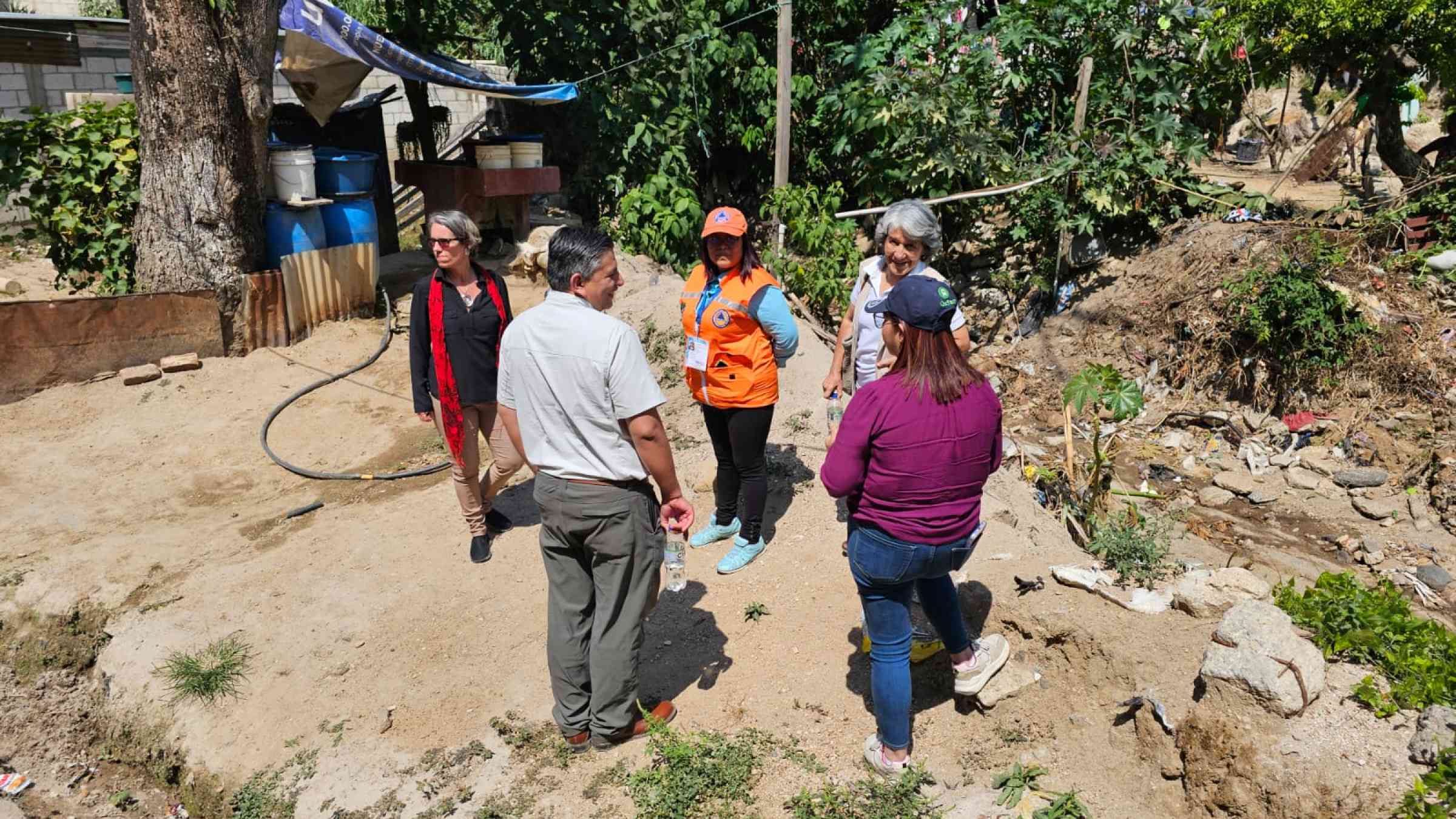Women's leadership drives resilience in Guatemala

In the heart of Guatemala's urban metropolitan area, the community of Montemoria in Villa Canales faces major challenges: lack of urban planning, absence of effective drainage systems for torrential rains, lack of decent housing, and extreme poverty make this place a critical point in terms of risk and vulnerability.
From difficult accessibility to the permanent hazard of insecurity, every day represents a struggle for survival in this small neighborhood. But in the face of adversity, the community does not give up. Instead, it has demonstrated a remarkable capacity for organization and resilience.
One of the main concerns in this area is the poor management of a creek, where domestic, construction, and industrial waste accumulate, increasing the risk of flooding and contamination. In addition, the lack of resilient infrastructure is shown in every rainy season, which leaves destroyed bridges and blocked roads in its wake.
However, in the midst of these conditions, the community has woven a valuable network of preparedness and response. Community organization, in close collaboration with municipal authorities, central authorities, and the scaled-up system of the National Coordination for Disaster Reduction (CONRED), has been crucial. By establishing a local response plan, they have been able to implement effective warning communication systems, giving residents up to 25 minutes to evacuate when rains threaten flooding.

The Local Coordinator for Disaster Reduction (COLRED), as an essential part of this community organization, has been at the heart of emergency preparedness and action. From risk identification to evacuation planning and resource coordination, COLRED demonstrates the strength and solidarity of the community in difficult times.
Civil society support, especially through the Hope and Fraternity Foundation (ESFRA) and the Institute for Overcoming Urban Poverty in Guatemala (ISMUGUA) alliance, has been a key pillar in strengthening community resilience. Their collaborative initiatives have promoted awareness-raising, training, and the implementation of sustainable projects that contribute to disaster preparedness and mitigation.
Disaster preparedness efforts have also been supported by the Disaster Preparedness and Risk Reduction Program in Central America (DIPECHO), sponsored by the European Commission's Civil Protection and Humanitarian Aid Operations Department (DG ECHO) through OXFAM. This program has provided resources and technical support in the past to strengthen the community's response capacity to natural and man-made hazards.
These efforts, together with active participation in regional drills organized by entities such as the Coordination Center for Disaster Prevention in Central America and the Dominican Republic (CEPREDENAC), demonstrate a strong commitment to preparedness and inter-institutional coordination.
